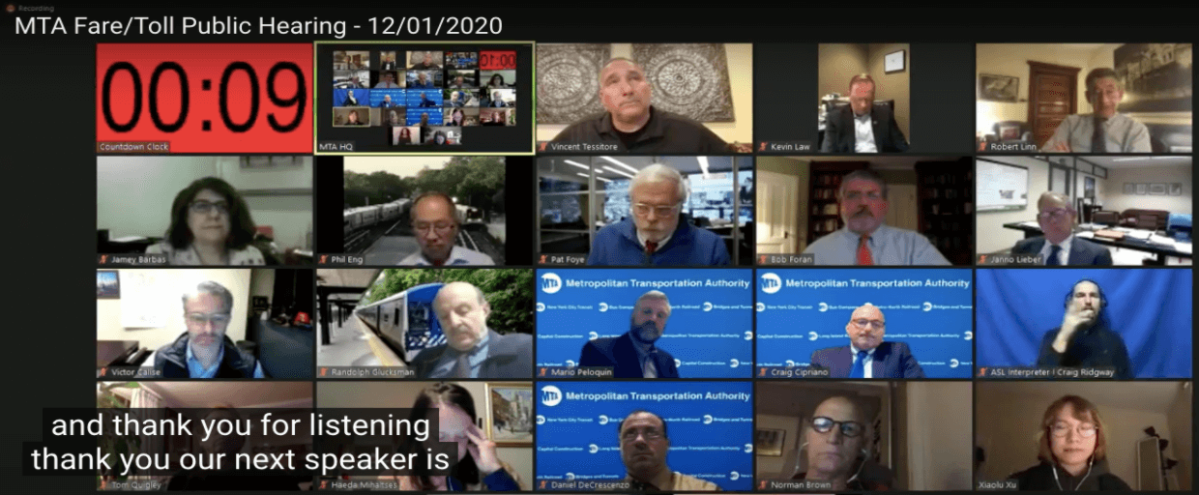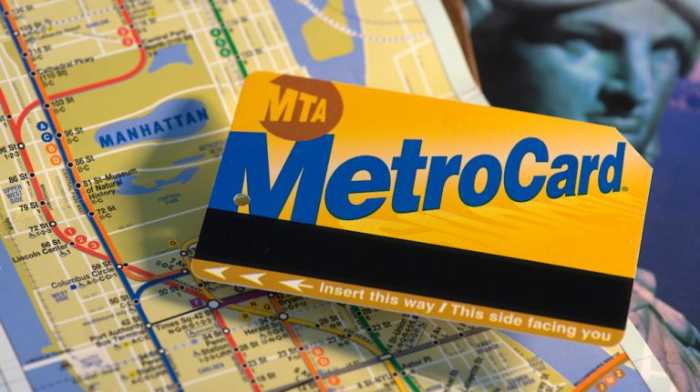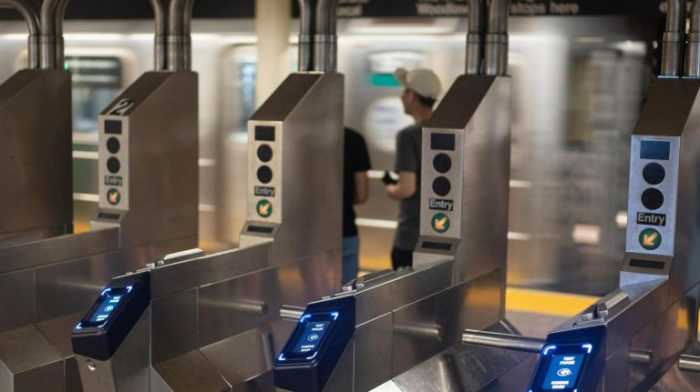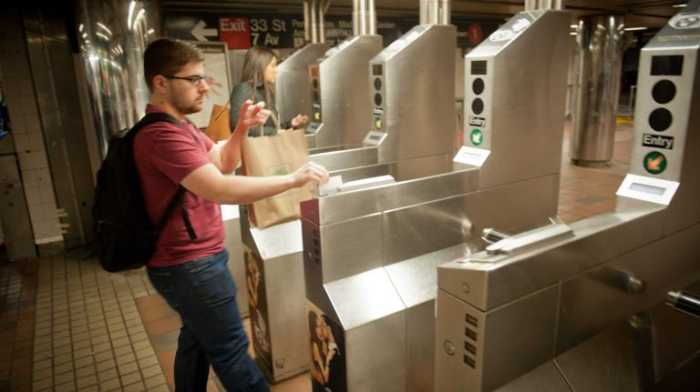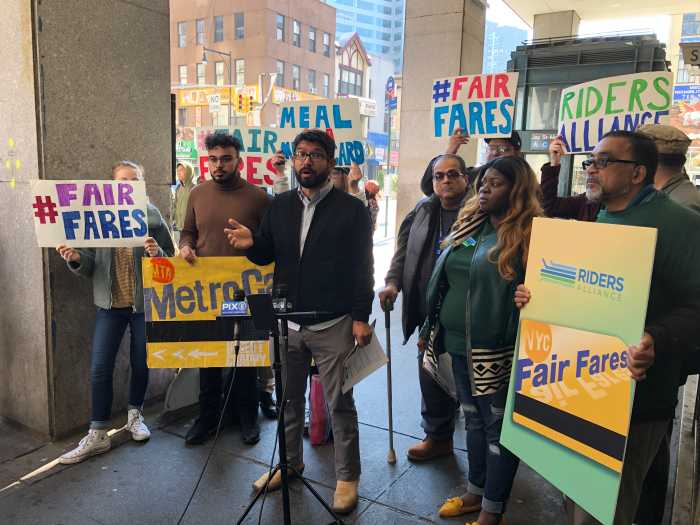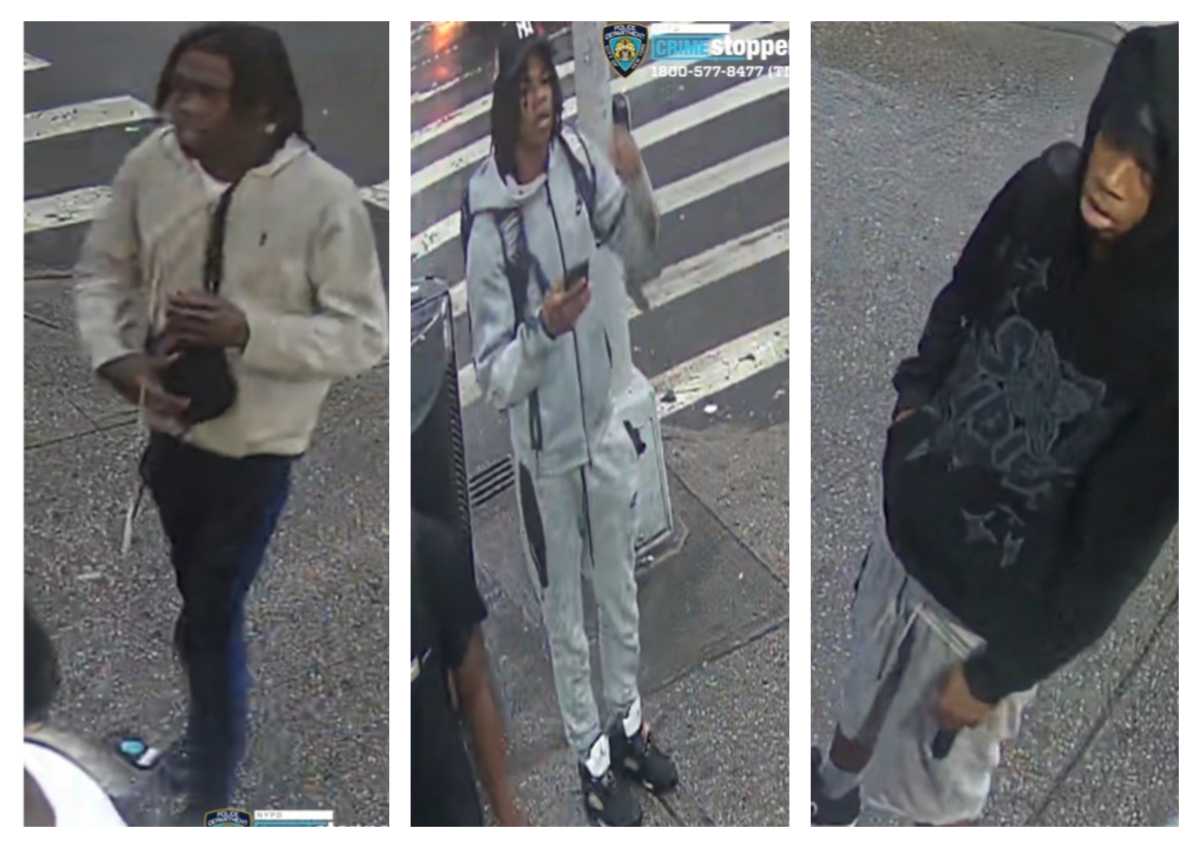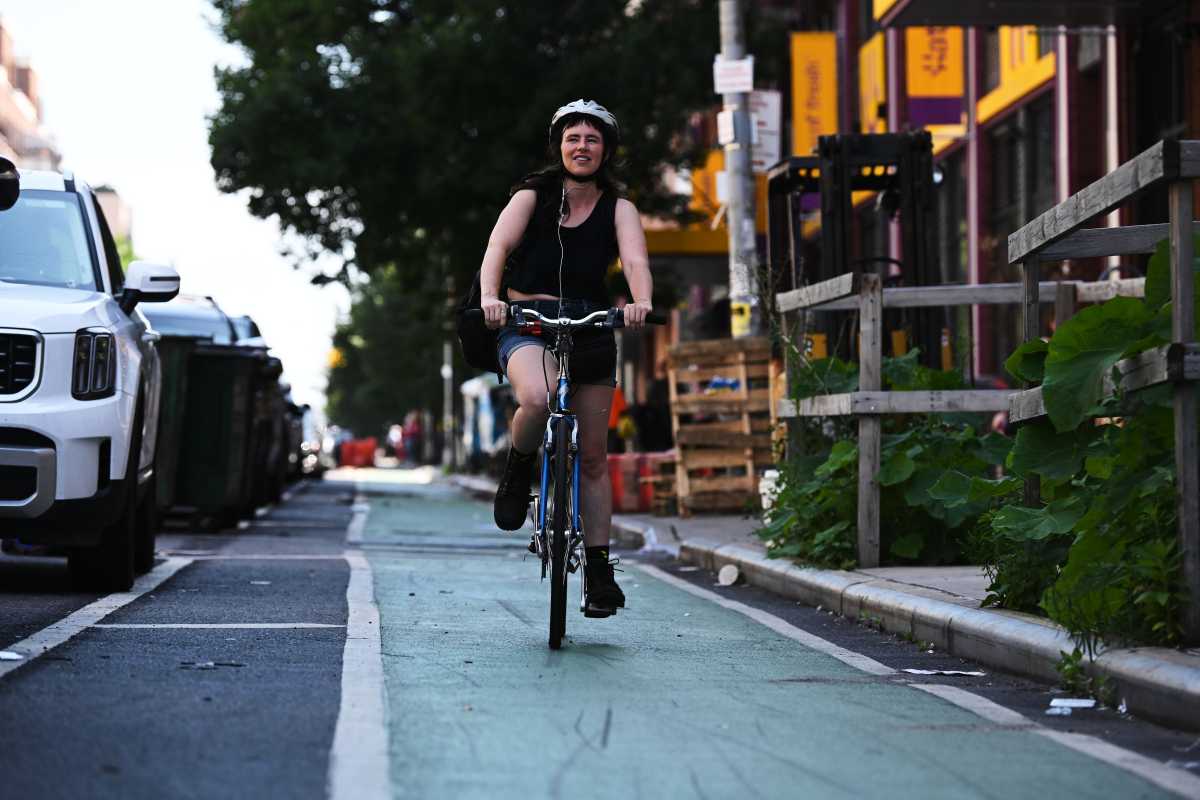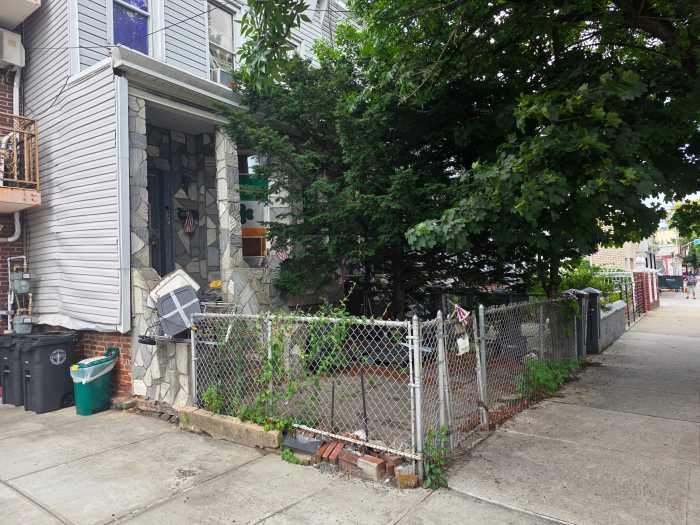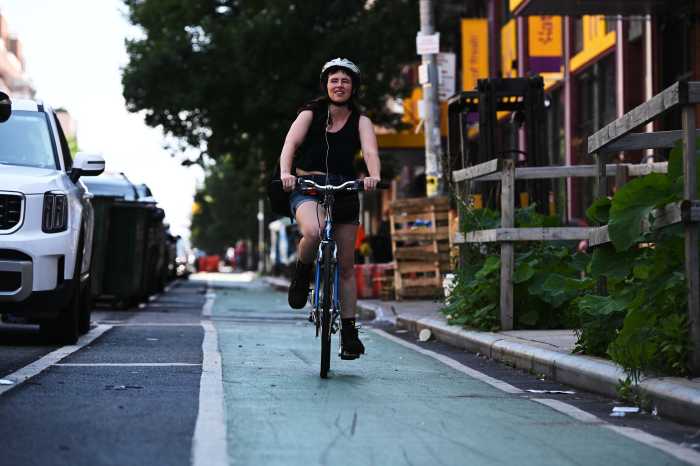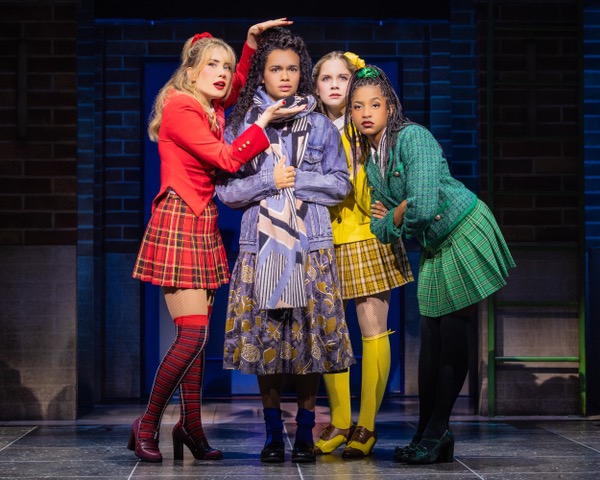You’ll make it worse.
That was the general consensus of riders testifying Tuesday at the first in a series of virtual hearings that the MTA is holding on a proposed 4% fare/toll increase that critics claim will only kill the presently suffering ridership.
Speakers told MTA leaders in virtual attendance Tuesday night that putting the onus on commuters was a wrong-headed approach to close stabilize their finances which MTA Chairman Pat Foye said is even worse than what was seen during the Great Depression.
On the table is a 2% to 4% increase on all ticket types or the elimination of 7- and 30-day unlimited passes which offer discounts to daily commuters by through extra rides.
An 8% increase on tolls are also under consideration.
“To be clear, our current toll and fare proposals are not intended to address our current financial crisis due to COVID. As you know, the MTA because of COVID is facing the worst financial crisis in its history, far outpacing anything we’ve ever dealt with in the past,” Foye said. “Our goal is to minimize impact on New Yorkers in these difficult times. Still we fully know any increase will hurt New Yorkers especially those in areas that depend on us most.”
Arthur Schwartz, a Greenwich Village attorney running for the City Council seat occupied by Council Speaker Corey Johnson who has done battle against the city’s proposals for bus lanes and busways, was critical of raising fares to cover costs as he believes it only scare customers away.
“We can’t let the current crisis situation affect long-term policy. To do what this board is proposing to do with the fares would be the same as grocery stores doubling the cost of milk in order to cover losses,” Schwartz said. “The way to regain ridership in the system is not to make it more expensive and to cut service.”
Charlton D’Souza, the president of Passengers United, said unlimited MetroCards should not be eliminated for any reason and instead elected officials should be champion taxes increases elsewhere.
“All the elected officials who spoke earlier, you know what we need? We need a gas tax, right now, passed and we need a millionaire’s tax passed in New York state, D’Souza said. “We shouldn’t even be asking people to pay fares at a time when people have lost their jobs, they’re unemployed, many have died. This is just an outrage that we’re asking people to pay more.”
D’Souza repeated the point that people will ride less if they pay more.
John Ferretti, a subway conductor and Transport Workers Union Local 100 activist through Local 100 Fightback, blasted the “ruling class” leaders in the MTA for what he viewed as an attempt to burden the working class as a result of crisis in which they suffered the most.
“The MTA bosses are not in any way victims in this crisis, working class and poor people are and we have paid the price with the lives and suffering of our communities. Your crocodile tears are not fooling anyone,” Ferretti said. “Your doomsday budget basically tells New York’s working class and poor communities to drop dead… If you want a war with essential workers and our families and communities, you’re going to get it… We will bring this war to your doorstep in any way possible and there will be no escape for you.”
The dates and times for the next hearings are as follows:
• Wednesday, Dec. 2, from 5:30 to 8:30 p.m. (virtual)
• Thursday, Dec. 3, at 10 a.m.
• Monday, Dec. 7, at 5:30 p.m.
• Tuesday, Dec. 8, from 10 a.m. to 1 p.m. (virtual)
• Wednesday, Dec. 9, at 5:30 p.m.
• Monday, Dec. 14, at 5:30 p.m.
• Monday, Dec. 21, at 10 a.m.
Learn how you can register to comment and view these hearings by visiting new.mta.info/2020hearings.



